#rajoles d'arts i oficis
Explore tagged Tumblr posts
Text
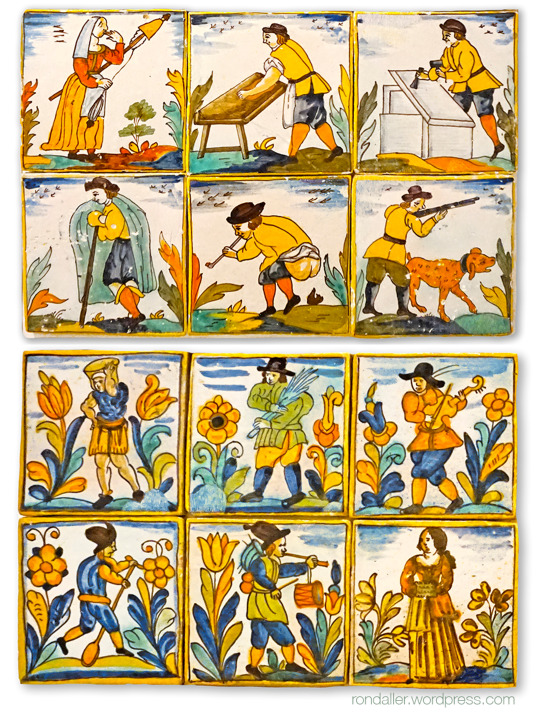
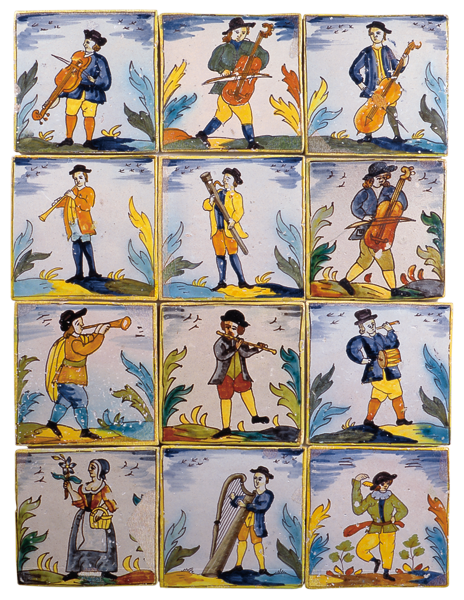
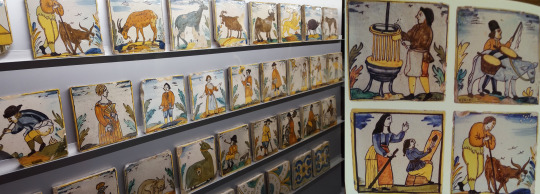
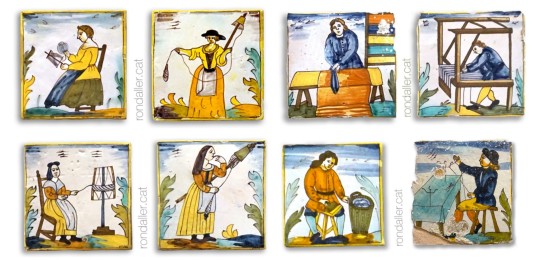
1: Museu Episcopals de Vic (font: Rondaller), 17th century. 2: Museu d'Art Medieval, 18th century. 3: Museu de Ripoll, 18th century. 4: various museums (Museu Can Serra, Museu Vicenç Ros, and Monestir de Pedralbes).
Ceramic tiles that represent everyday activities are very common in the Catalan folk art between the 17th and the 19th centuries. Most of them represent jobs, but other represent hobbies, festivities and animals. Through them, we can see how people worked and had fun back then.
This style of art has remained iconic through time, and there are still artisans who make job tiles.
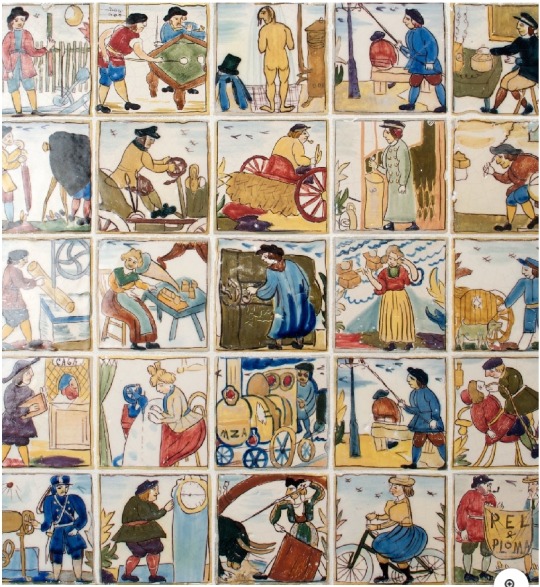
Tile collection titled "The 19th century's advances" made by Ramon Casas in 1901. Museu de Maricel, Sitges.
They represent some of the best new inventions and things that became popular in the century that had just ended, including the photo camera, the hot water shower, the automobile, the train, the sewing machine, the flushing toilet... and ending Ramon Casas and his friend Miquel Utrillo themselves holding up a banner for "Pèl & ploma", the artistic magazine they had founded in 1899.
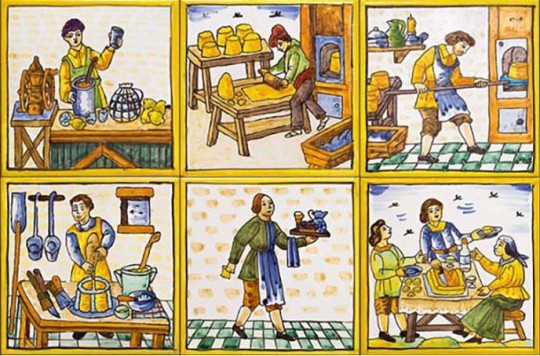
Modern tiles representing a bakery. Handmade in the traditional method and style by the artisans Art de la Terra.
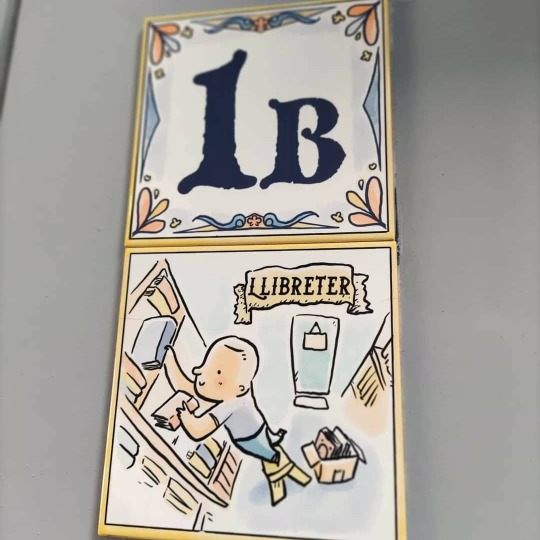
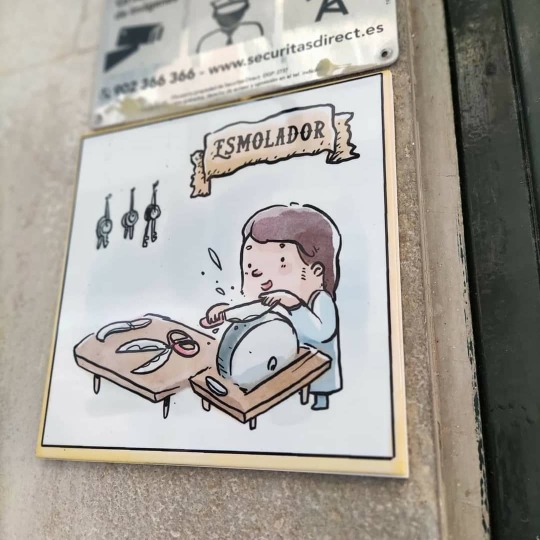
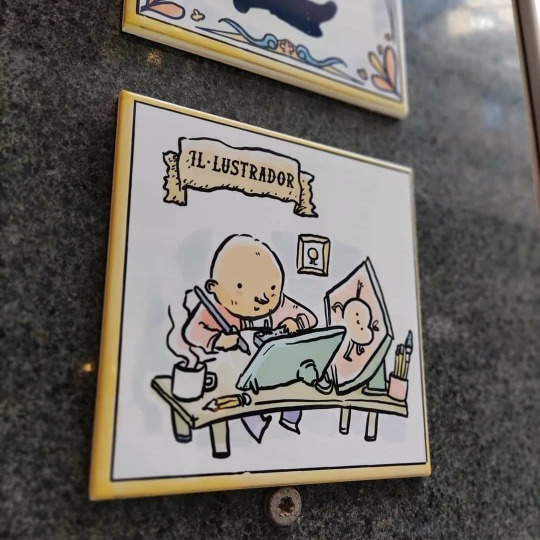

Modern-style tiles representing a book seller, a sharpener, an illustrator and a furrier. Made by Melicotó Style with Els Geranis.
#arts#rajoles d'ofici#rajoles d'arts i oficis#tiles#ceramic tile#tile#folk art#art history#europe#art#museums#jobs#catalunya#decorated tiles#working class history#1600s#1700s#1800#ramon casas#ceramics
61 notes
·
View notes